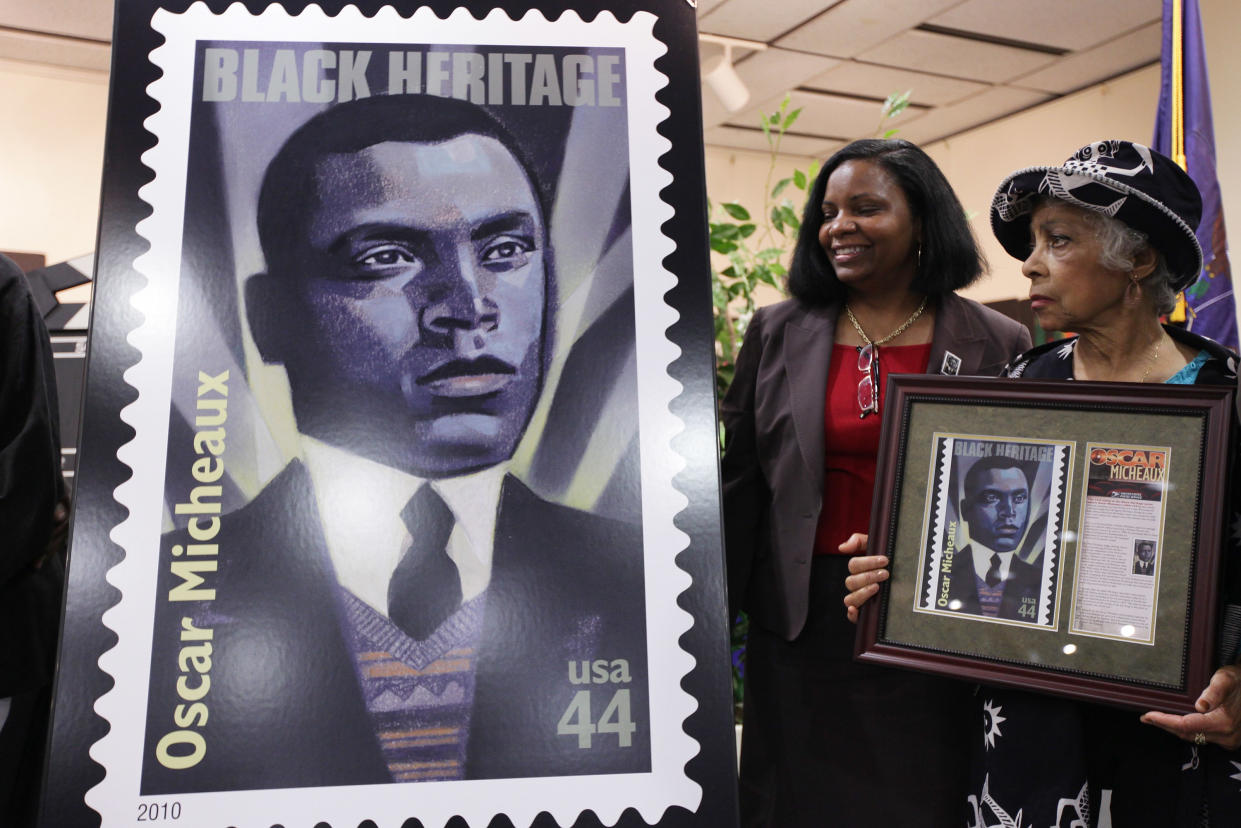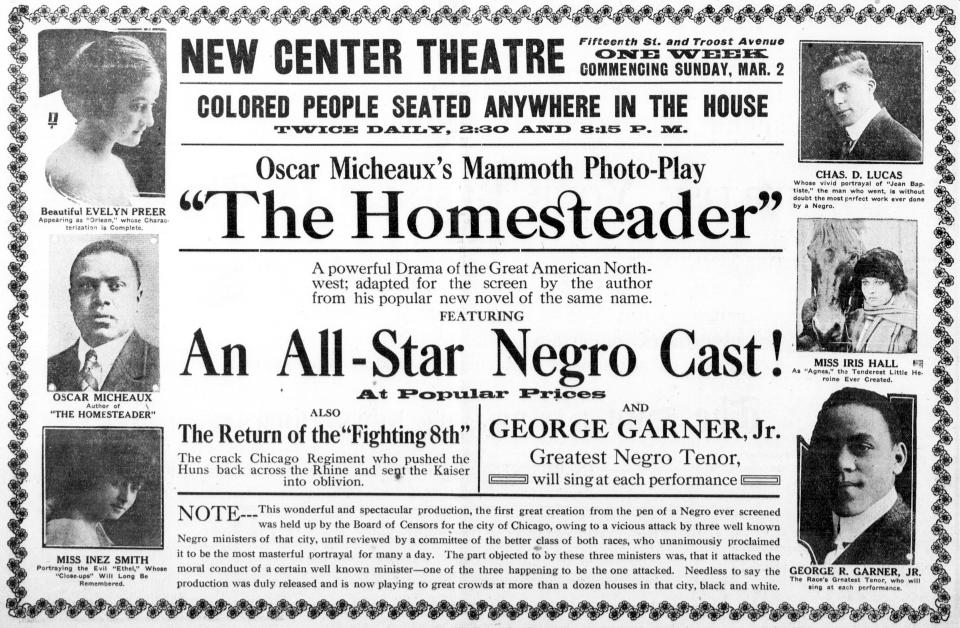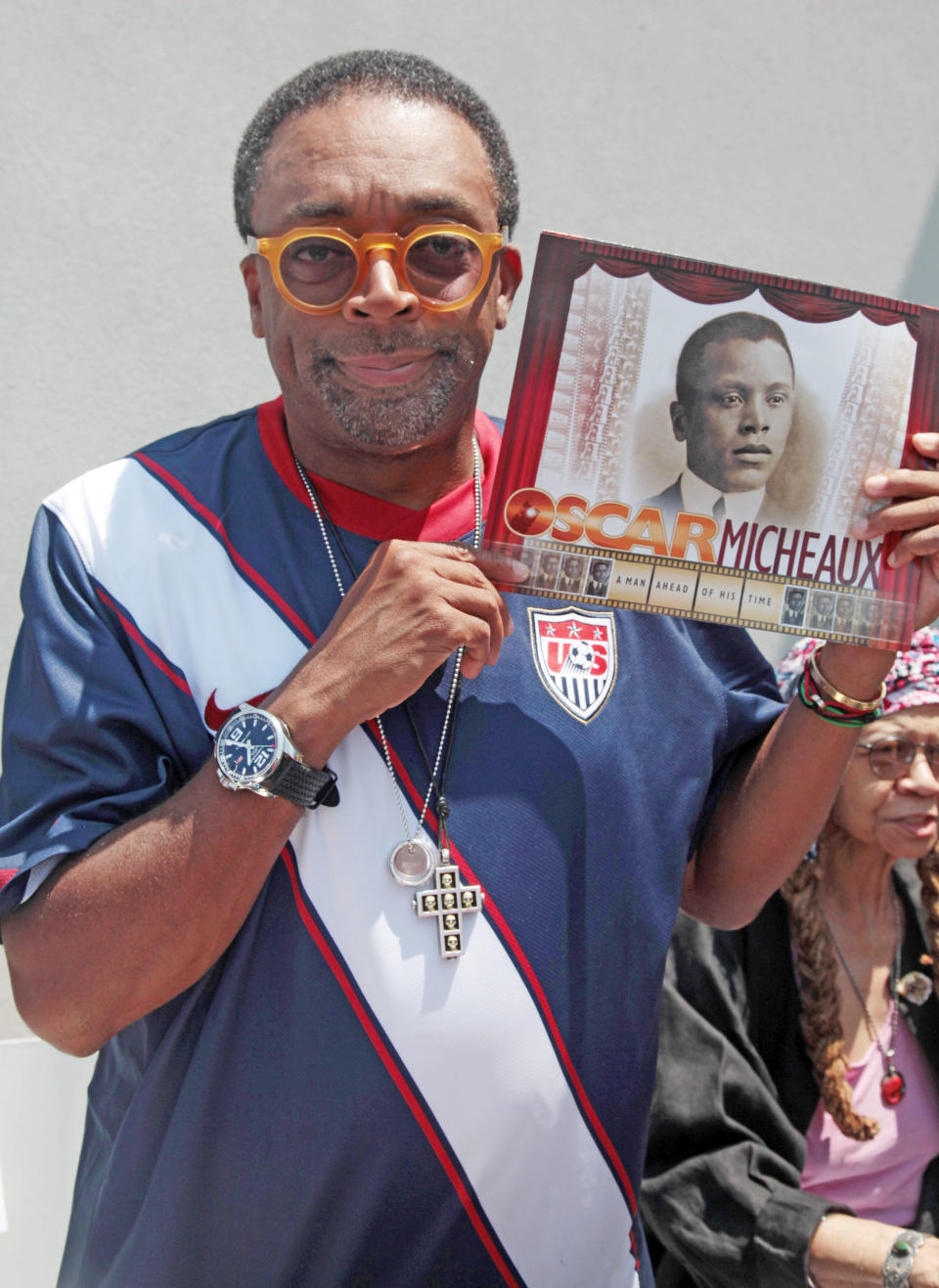Oscar Micheaux's 'The Homesteader': The first 'race film' in history of cinema turns 100

In the grand scheme of things, 100 years is not a long time, but for the film industry it spans the vast majority of its history.
This centenary celebration is particularly important, however, as it marks a huge milestone for a certain genre of cinema - in 1919 The Homesteader, the first feature length “race film”, was released.
Race films were independent films designed to be enjoyed specifically by black audiences, who were often unable to see themselves depicted in a positive light on screen.
Why is this film important?
The Homesteader, directed by Oscar Micheaux, tells the story of Jean Baptiste, a black man who is a homesteader in the Dakotas, who meets Agnes, the woman of his dreams. But as she is white, their love is forbidden and he eventually marries Orlean, the daughter of a preacher.
Through the twists and turns of fate, however, it turns out that Agnes has black heritage and therefore Jean is eventually able to marry her.

The significance of the film includes taking the historical background into account. During the early 20th century, segregation was in full force as it was the Jim Crow laws era, and it was almost impossible for black people to receive the same level of education as white.
Four years prior, in 1915, D.W. Griffiths’ The Birth of a Nation was released - a film which is now known as the most controversial film ever made in the United States and “structurally racist film in the whole of cinema history”, according to Professor Melvyn Stokes, a professor of film history at UCL.
Part fiction and part history, it chronicles the assassination of Abraham Lincoln by John Wilkes Booth and the relationship of two families in the Civil War and Reconstruction eras over the course of several years.
Read more: Indiana Jones and The Last Crusade was nearly a total disaster
In that film, black people, who are portrayed by white actors in black face, are depicted as uncouth, drunk and lecherous, in one scene they are observed stuffing ballot boxes, while denying many whites a chance to vote.
The film's release has been acknowledged as an inspiration for the rebirth of the Ku Klux Klan only months later, and set a standard of negative representation of black people in the media.
Whilst it is not known if The Homesteader was created as a response to this, Micheaux “aimed to create a kind of ‘alternative cinema’ in which blacks were not exploited as either docile servants or ignorant bumpkins, but were rather imbued with the classic American aspirations of upward mobility, romantic fulfilment, and inherent dignity”, according to Donald Bogle, a film historian, in the podcast Film Comment.
The unfortunate thing is that this film is now considered to be lost, and all reference to it only exists in the reviews written at the time of its release.
Who is Oscar Micheaux?
Oscar Micheaux is known as America’s first successful black filmmaker, who starred, directed and produced over 40 films during a time where it was believed someone couldn’t spell if they were black.
He was an innovative filmmaker in that he explored taboo racial subjects, like interracial romance and the hostile environment black people had to face when moving into an urban environment.
He himself wrote in one of his many books: “One of the greatest tasks of my life has been to teach that the coloured man can be anything.”
Born on 2 January 1884, in Metropolis, Illinois, he was the fifth child of freed slaves.

At the age of 17, he left his home town for Chicago, and in 1905, he gambled with his life savings to buy a farmhouse in South Dakota, where he settled among white homesteaders, determined to build a 1,000 acre ranch.
However, a few years later a severe drought brought an end to that dream, but he used his experience as a basis for a series of books, which he self-published and sold door-to-door.
They sold well and even piqued the interest of Lincoln Pictures, who made a bid for the rights to one of his books The Homesteader.
Even though he had no previous experience, he demanded that he would direct the film himself, which caused Lincoln Pictures to withdraw their offer.
Read more: Inside the Tim Burton 'Batman' you never saw
Despite the deal falling through, within a few months Micheaux had assembled a cast, crew and a chauffeur who drove them from Chicago to Winner, South Dakota - a 750-mile journey.
They spent one day shooting location scenes on the Delfs family farm.
Olive Delfs, who was just a young girl when this happened, said in an interview: “People were total strangers to you out here, and somebody came in with intelligence, an idea that at that times was way out there.”
His legacy
Micheaux died on 25 March 1951, in Charlotte, North Carolina, of heart failure at the age of 67, and his gravestone reads "A man ahead of his time".
He was recognised with a star on the Hollywood Walk of Fame in 1987, and in 2010 his face was printed on a commemorative stamp by the US Postal Service.

Although not well known outside of the filmmaking industry, his perseverance during a time of huge discrimination undoubtedly opened the door for minorities to be able to tell their stories unadulterated by ignorance.
His legacy can be summed up by Oscar-winning director Spike Lee, who said: “I am only here because of people like Oscar Micheaux before me.”

 Yahoo Movies
Yahoo Movies 

